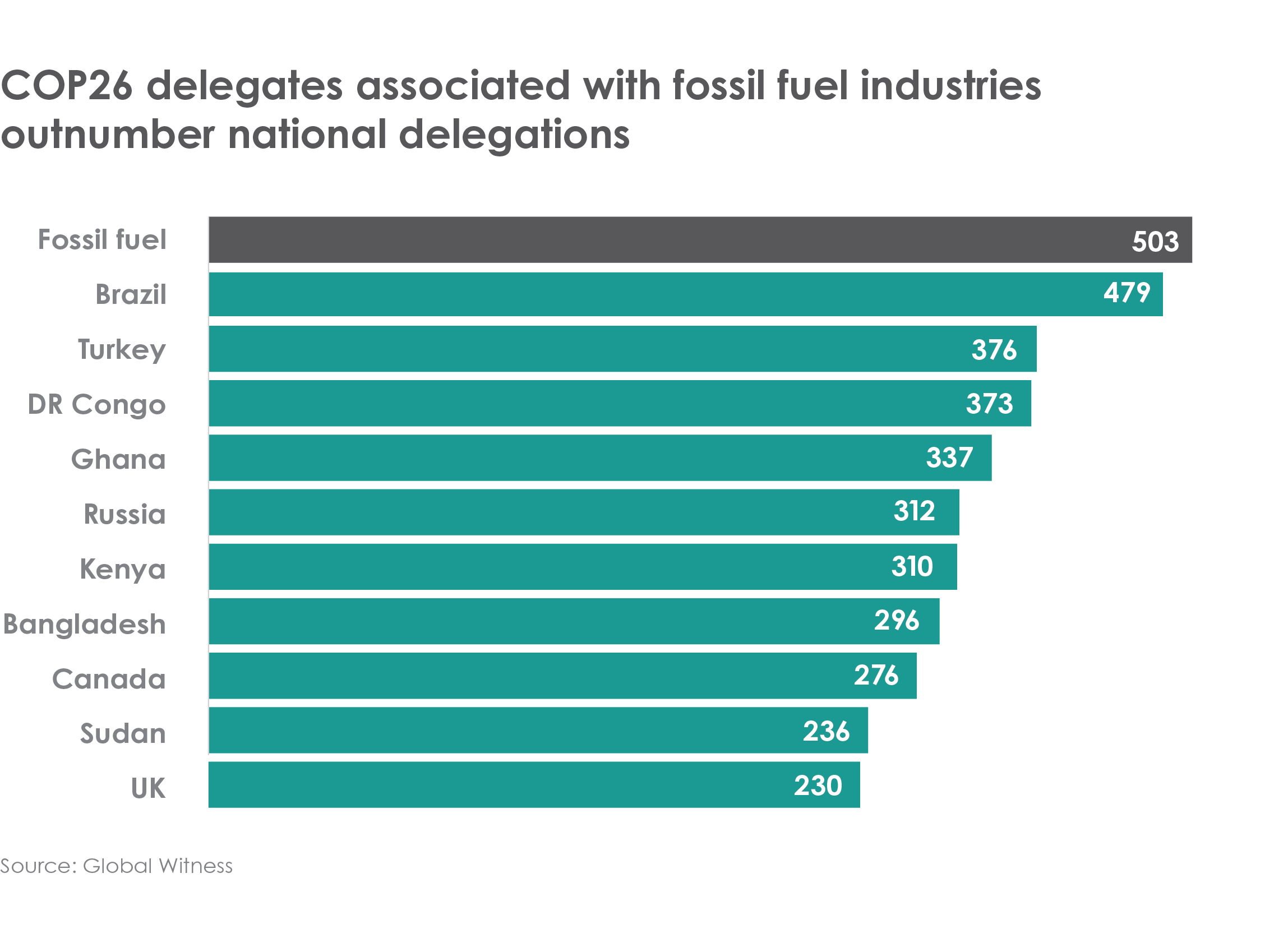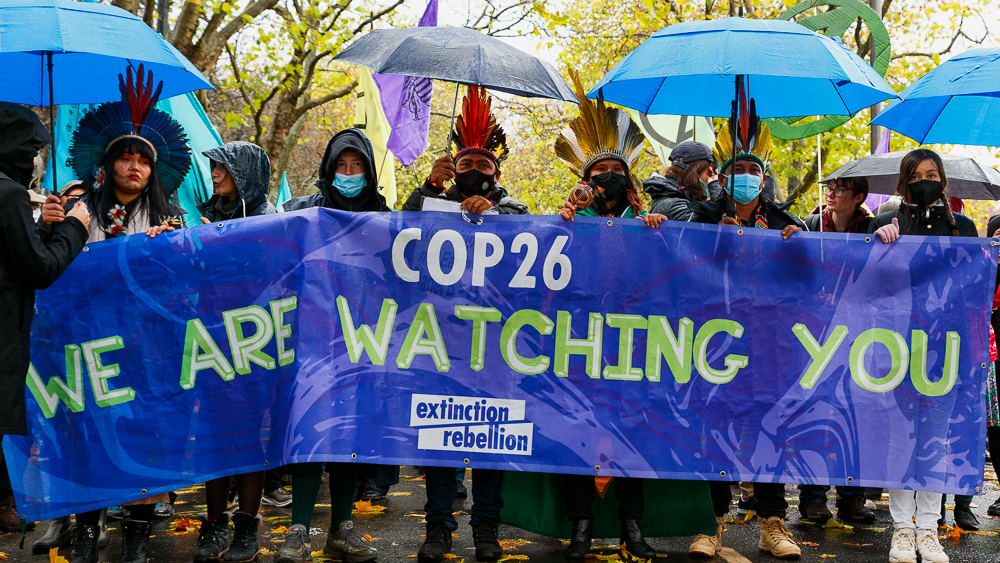Fossil fuel lobbyists outnumber COP26 delegates from the eight countries worst affected by climate change combined.
Despite promises by organizers to prevent it, the fossil fuel industry made up the biggest number of attendees at COP26 in Glasgow with 503 attendees directly or indirectly linked to the coal, oil and gas sector, according to research by U.K. environmental organization Global Witness.
Equally alarming was the number of countries with disproportionately large delegations that included fossil fuel representatives in their ranks. Global Witness identified fossil fuel lobbyists in the delegations of 27 countries, including, not surprisingly, Russia and Canada.
“The fossil fuel industry has spent decades denying and delaying real action on the climate crisis,” said Murray Worthy from Global Witness. “Their influence is one of the biggest reasons why 25 years of U.N. climate talks have not led to real cuts in global emissions.”
More than 100 fossil fuel companies were at COP26 and 30 trade associations were present. One of the biggest was the International Emissions Trading Association (IETA) with 103 delegates, including three people from BP.
The number of fossil fuel lobbyists at COP was larger than the combined total of the eight delegations from countries worst affected by climate change in the past 20 years: Puerto Rico, Myanmar, Haiti, Philippines, Mozambique, Bahamas, Bangladesh and Pakistan. Their numbers also dwarfed the UNFCCC’s official indigenous constituency by almost two to one.
Global Witness identified fossil fuel lobbyists in the delegations of 27 countries, including, not surprisingly, Russia and Canada.
“Banning the tobacco industry from lobbying at global health talks was a watershed moment for tackling the health impacts of smoking,” said Barnaby Pace, Senior Campaigner at Global Witness. “We need a similar transformational moment where we stop letting the profits of the fossil fuel industry be prioritized over the needs of people and the planet.”
Almost 40,000 people are attending COP26. Brazil has the biggest official team of negotiators according to U.N. data, with 479 delegates followed by Turkey, the Democratic Republic of Congo and Ghana. The U.K., which is co-hosting the talks in Glasgow, has 230 registered delegates.

Jo Dodds, founder and president of Australia’s Bushfire Survivors for Climate Action who attended COP this year, tweeted a video exposing the Australian government’s pavilion badged with the giant logo of oil and gas company Santos Ltd. In her video, security guards are seen following Dodd as she uses her phone to shoot the Santos logo and copies of company reports on site. Santos’ CEO was also videoed at the pavilion talking with the country’s Treasurer Angus Taylor.
Former Australian Prime Minister and climate advocate Malcolm Turnbull criticized the collusion saying, “Look at the Australian stand — you’ve got a gas company highlighted apparently at the insistence of the Energy Minister, who thinks that our energy policy should be all about burning gas. The whole object is to stop burning fossil fuels.”
The AFP’s Patrick Galey, who reported in 2019 that lobby groups representing the world’s biggest polluters sent thousands of delegates to the U.N. climate talks that year, said numbers were smaller but posted regular Tweets naming oil executives at COP26. The list included representatives from Chevron, Shell and a former British Minister who is now chair of Equinor.
Last year, the British government proudly announced that fossil fuel companies were banned from applying as financial sponsors for COP26. That hasn’t stopped them. Documents show that BP, Shell and Equinor met dozens of times with U.K. ministers in the run-up to Glasgow and found ways to attend the COP.
“Removing the influence of fossil fuel companies and ensuring those on the frontlines of the climate crisis are heard must be the top priority to creating a fairer more effective COP process,” Pace said.
Global Witness said that in 2016 countries representing almost 70% of the world’s population requested that conflicts of interest at U.N. climate talks be addressed and that civil society has put forward detailed recommendations. A fit-for-purpose conflict of interest policy should exclude organizations that have financial or vested interests in the production or burning of fossil fuels.
“Removing the influence of fossil fuel companies and ensuring those on the frontlines of the climate crisis are heard must be the top priority to creating a fairer more effective COP process,” Pace said.
“We are calling for clear conflict of interest policies to be put in place in order to protect the integrity of U.N. climate talks,” he said. “Clearly one set-piece event a year, without anything in between cannot solve the climate crisis,” Pace said. “The scale of the problem requires world leaders to act in crisis mode. This means a highly ambitious policy, including the rapid phase-out of all fossil fuels.”
Pace said this COP, in particular, has seemed to catalyze the world’s media, citizens and world leaders to put the climate crisis out front of the global agenda.
“That can’t be a bad thing but the proof will be in the implementation and what happens from here,” he said.


